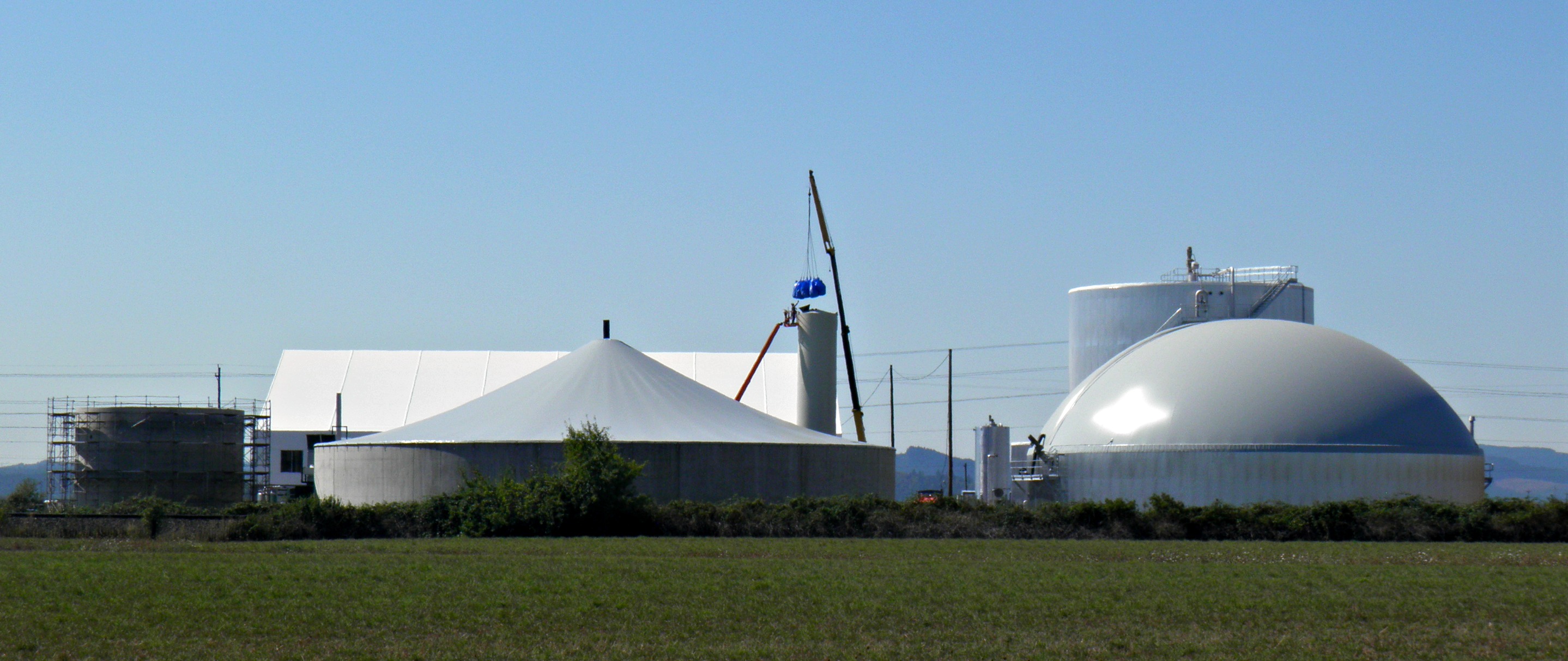
Oregon Pioneers New Biogas Model
America’s first merchant food waste digester, JC Biomethane, became fully operational in December 2013. The Climate Trust is set to purchase the greenhouse gas reductions that result from the project, a structure which enabled financing for this innovative project.
Normally, digesters are built at sites that generate organic waste—dairies, waste water treatment plants or food processors. The JC Biomethane project in Junction City, Oregon, is unique and follows a “merchant” model more common in Europe. JC Biomethane is built adjacent to a composter and agricultural fields, which have agreed to purchase the products of the digester—namely, organic compost and fertilizer. The project will amass approximately 25,000 tons per year of organic materials from businesses throughout the Willamette Valley; primarily from Eugene, Corvallis and the Portland area.
The digester ferments the resulting food waste to create methane gas, which is combusted to generate 1.5 MW of baseload, renewable electricity. In part, due to the incentives offered by both the federal Renewable Fuel Standard and California’s Low Carbon Fuel Standard—which recognize the significant greenhouse gas benefits of biogas—the project is also exploring the potential to compress its methane gas and use it as transportation fuel.
More than 97% of food waste from restaurants, homes and cafeterias ends up in a landfill; there it decomposes without oxygen and generates a potent greenhouse gas, methane. A large portion of this methane, even at landfills with gas collection systems, is released to the atmosphere. Digesting rather than landfilling organic feedstocks avoids these dangerous methane emissions, which are roughly 30 times more potent as heat-trapping gases than carbon dioxide. The Climate Trust estimates the project will avoid 10,000 metric tons of CO2 emissions in a single year—equivalent to taking over 2,000 cars off the road.
In simple terms, by putting food waste into a landfill, we are wasting a valuable resource. When properly processed, food scraps can generate renewable energy, enhance the soil as a fertilizer, and conserve limited landfill space. More specifically, the natural fertilizer produced by this process, improves soil health by increasing drought resistance, and reducing the need for supplemental water, synthetic fertilizers and pesticides. According to the EPA, if 50% of the food waste generated each year in the U.S. was anaerobically digested, enough electricity would be generated to power over 2.5 million homes for a year.
From a local perspective, by composting food and organic waste, businesses should be able to reduce the size of their traditional waste containers and reduce the frequency of pick-ups; lowering the cost of traditional waste hauling. Businesses should also experience improved sanitation, public safety, and health. Food waste dumped in standard trash cans and dumpsters can attract rodents and insects, as well as generate bad odors.
Despite this large potential to mitigate greenhouse gas emissions and provide a multitude of community benefits, only one other food waste digester is actively attempting to generate carbon credits. This is in part due to the complexity of the protocol under which credits are generated. As the project progresses, The Climate Trust is working with the Climate Action Reserve to credibly simplify the Organic Waste Digestion Protocol to prove and proliferate the JC Biomethane merchant digester business model.